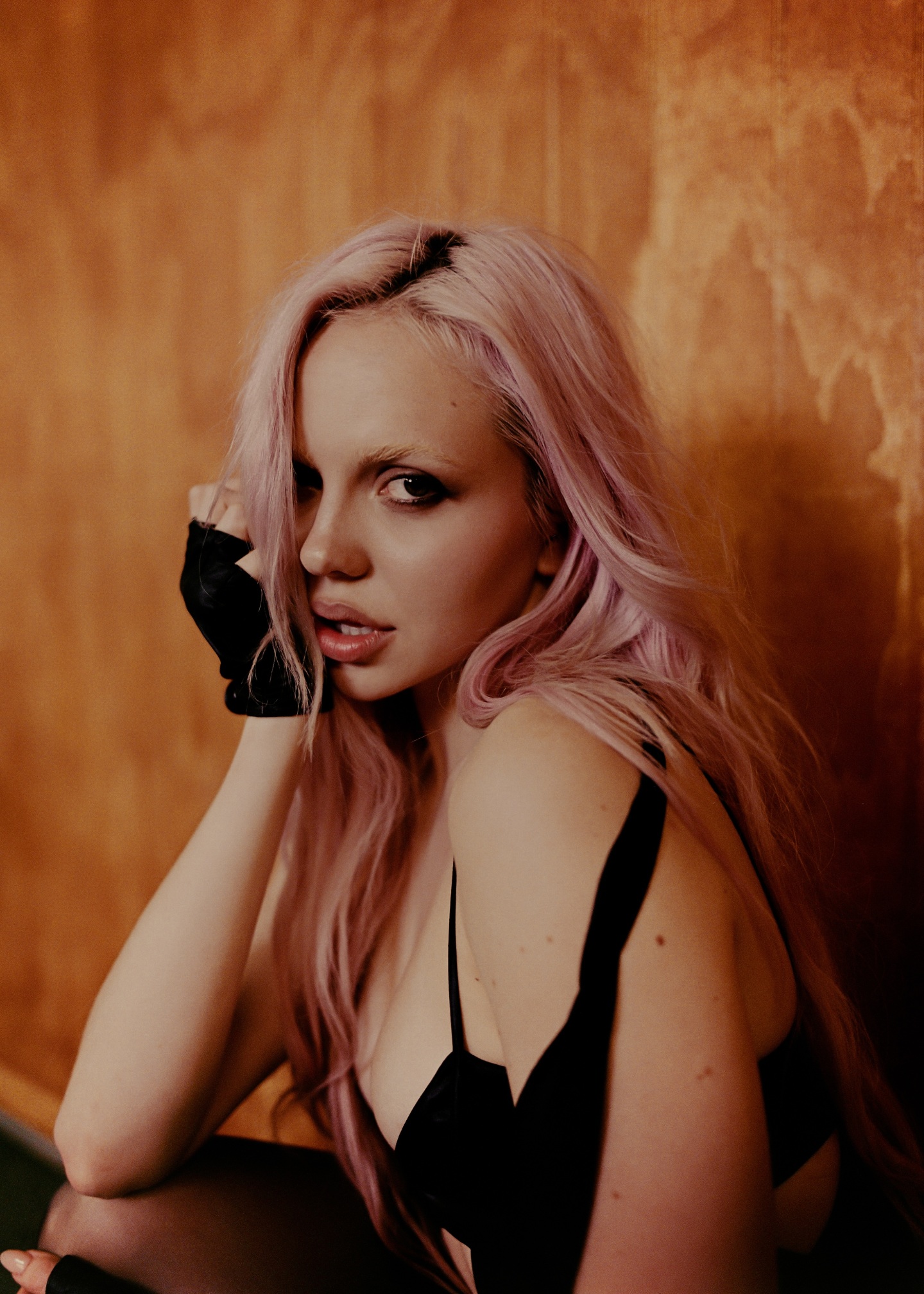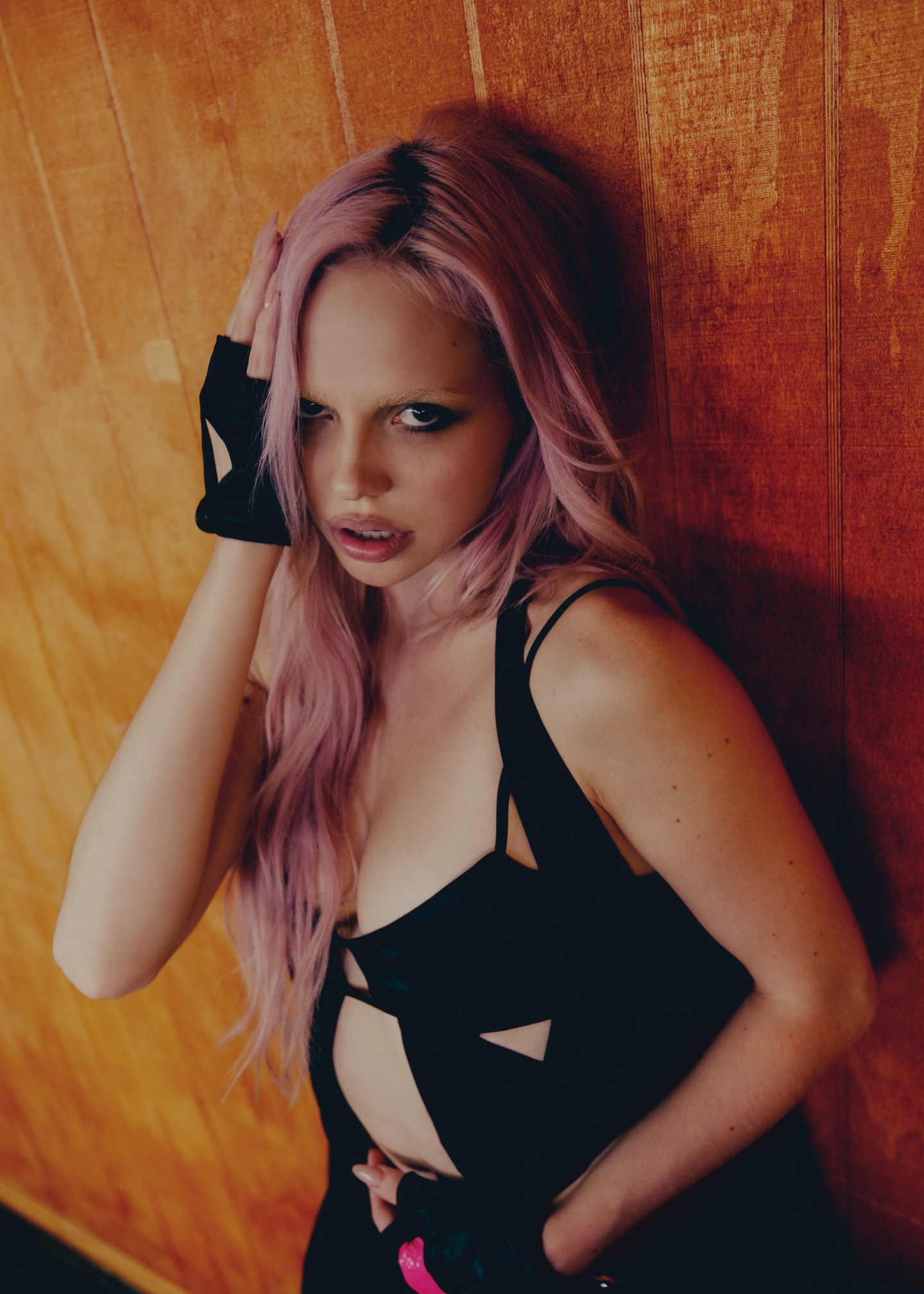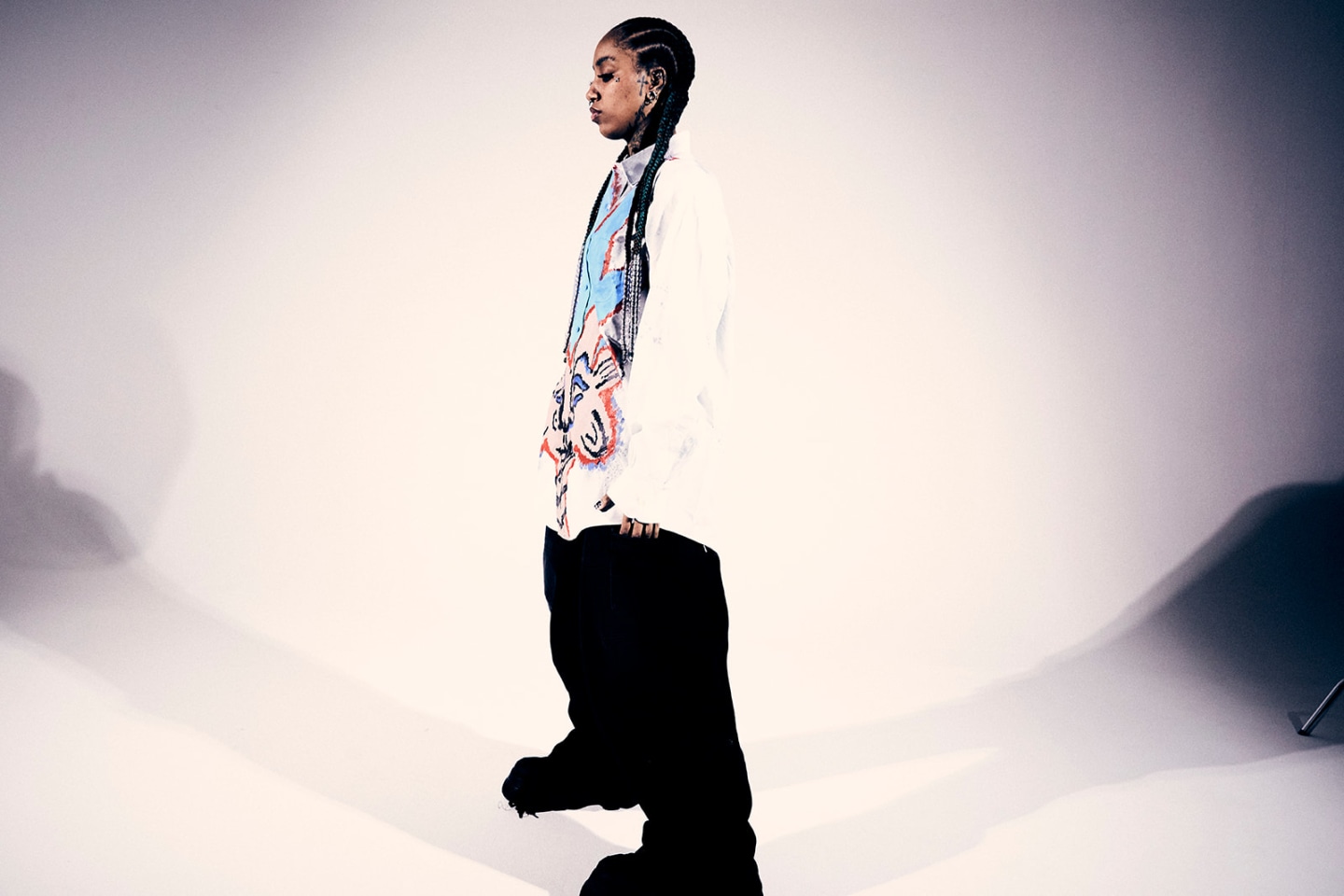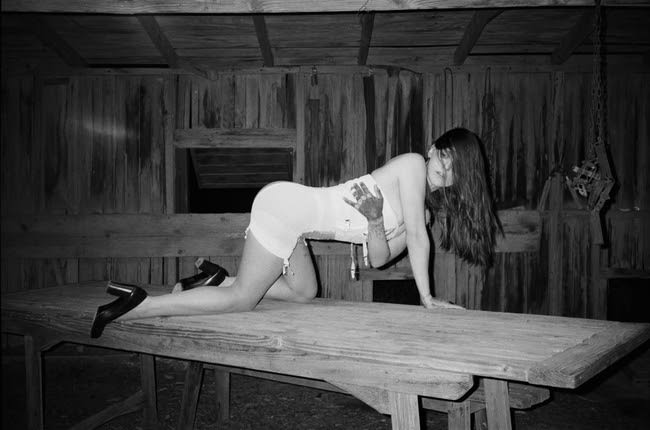The FADER’s longstanding GEN F series profiles the emerging artists you need to know right now.
ADÉLA swears she and Madonna have the same tits.
She told her best friend this after seeing the iconic photo of Madonna splayed nude on a bed in her full Erotica glory for the first time. “He’s gay, so I flashed him to prove it,” the 21-year-old says with a shrug, her long pink hair falling over her shoulders. “He was like, ‘Oh my god.’ And then he gave me the poster for my birthday.”
That poster now hangs in her Los Angeles apartment as a shrine to pop’s original provocateur, its frame floating above ADÉLA’s head over a recent Zoom call. Just out of sight is Sex, Madonna’s infamous 1992 coffee table book once deemed “morally intolerable” by the Vatican. Soon, ADÉLA will have her own offering to add to that pop altar with the arrival of The Provocateur, her debut EP (the cover of which shows her peeing on a wall). Its clubby sound, buzzing with electronic edge, mirrors the persona she’s cultivated: unruly, sharp, impossible to sand down. Her provocation is not shock for shock’s sake but a weapon used to seize control of her story in an industry that once tried to script it for her.
“I’ve always pushed people’s buttons and enjoyed doing so,” she says. “It’s like, ‘Why are you uncomfortable with what I’m telling you right now?’”
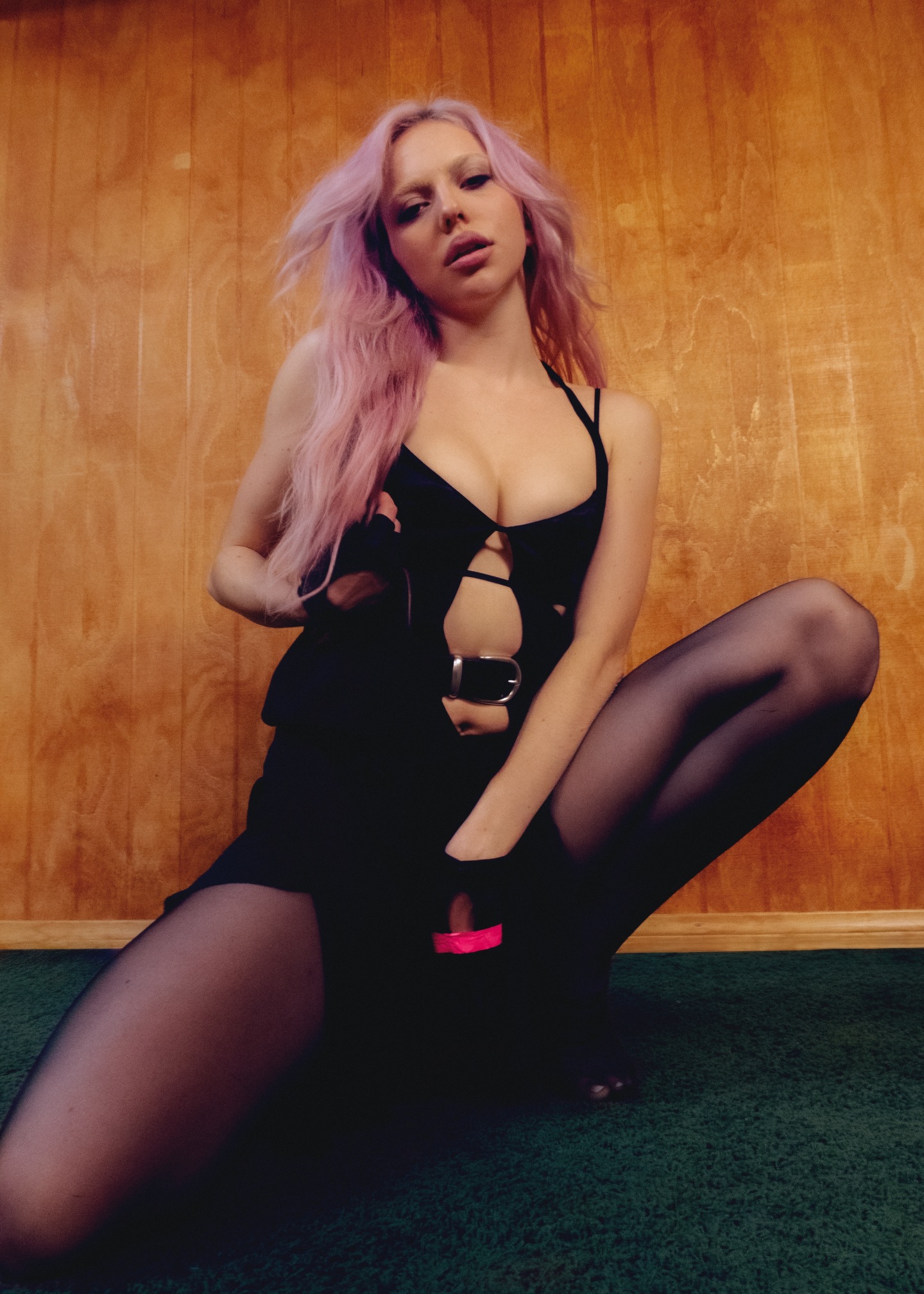
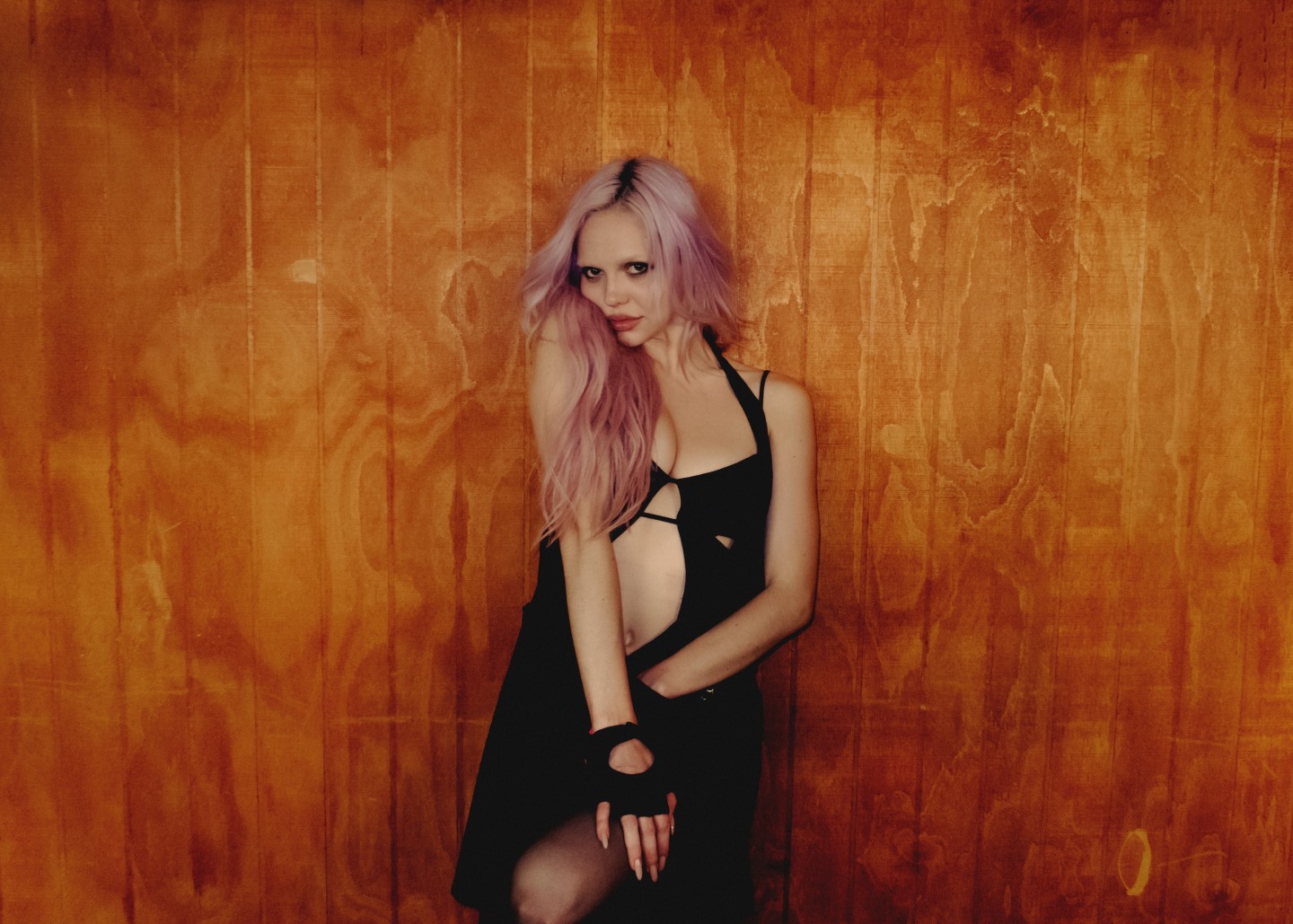
ADÉLA fostered her instinct to push back early. Growing up in Slovakia, she says she was always the “rage-baiter” in the room, the kid who’d declare that being gay is cool in a conservative town just to watch people squirm. In her bedroom, she was a student of pop, watching interviews with Miley Cyrus and Ariana Grande, working backward to Whitney, Mariah, Janet, and Madonna, to teach herself English by 9 years old and to plot her escape. But her self-Americanization, she later realized, put her even more at odds with her provincial classmates.
“I felt so different because I had been so Americanized by my own doing, and nobody else around me was like that,” she says. “I felt misunderstood and not on the same wavelength as everybody else.”
She began professional ballet training when she turned 11, moving to Austria and then London, but eventually quit to try her hand at music. (“Ballet is such a mind-fuck environment for a child,” she says.) Though her parents balked at her choices, in 2021, she secretly auditioned for a new global girl-group project from K-pop powerhouse HYBE and Geffen Records — and against the odds, got in. What ended up being a brutal, part-reality competition show, part-documentary called Pop Star Academy for Netflix — which led to the formation of the premier global girl group KATSEYE — suddenly catapulted ADÉLA to the world. As one of the earliest girls to be eliminated, she also became one of the show’s main protagonists whose every smirk, stumble, and snarky sound bite was fed to fan viewers across the world. Everything from her dance moves, to her perceived lip filler, and moments of frustration was dissected.
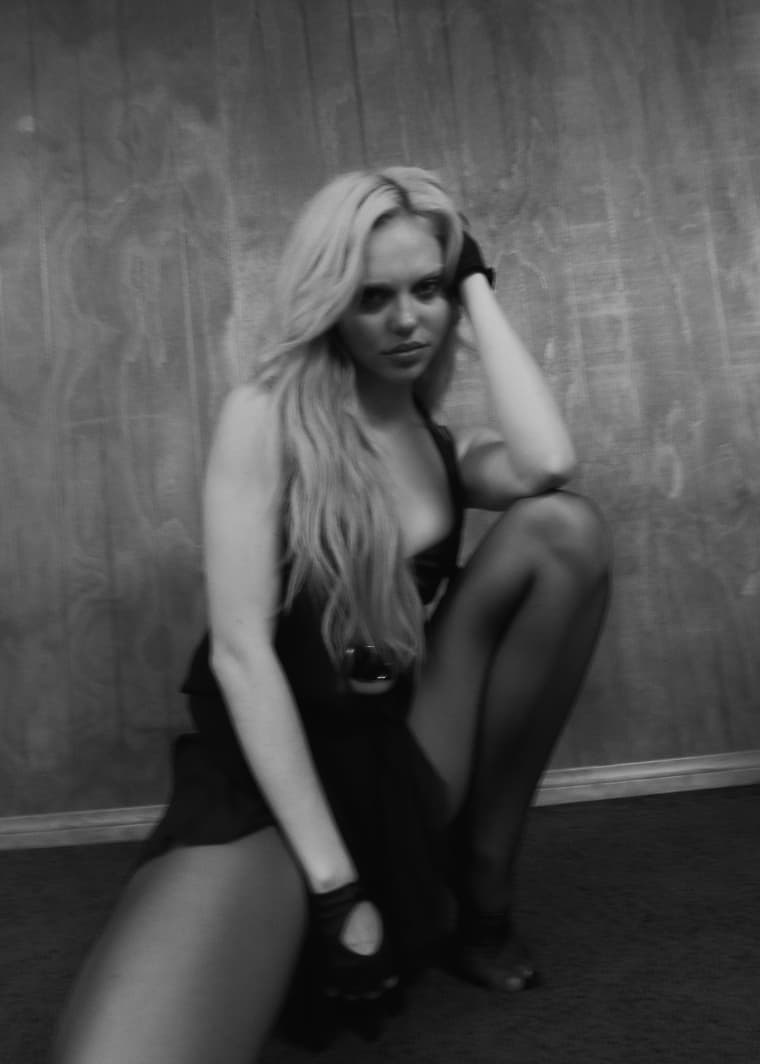
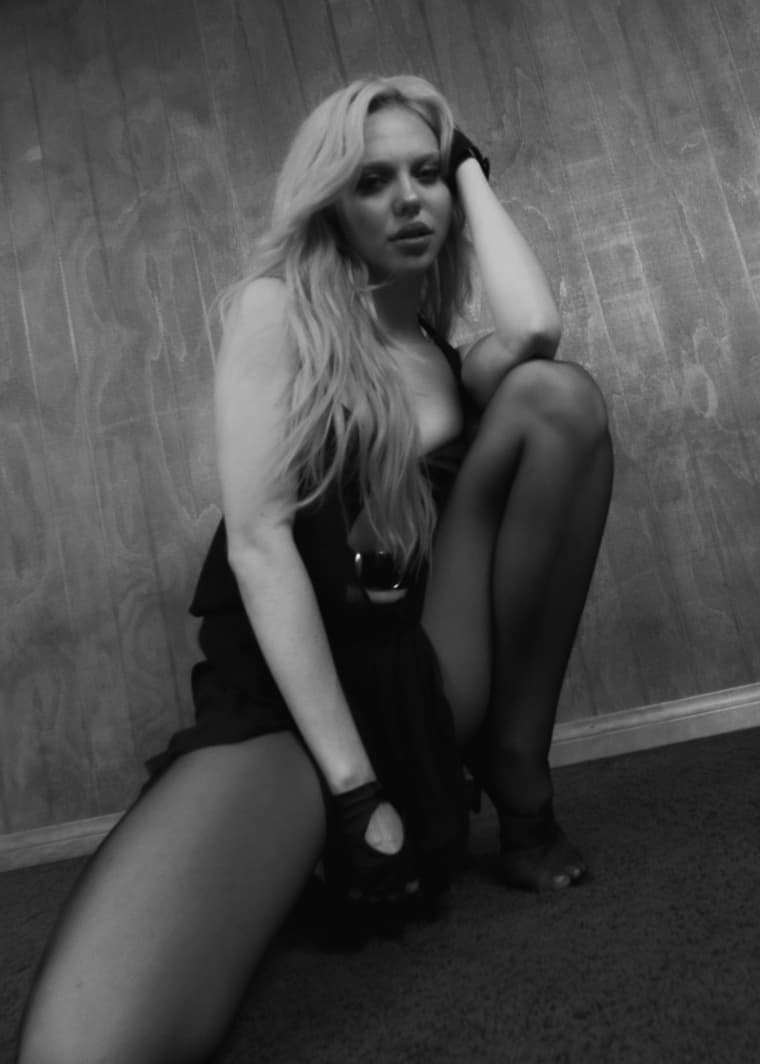
I’ve always pushed people’s buttons and enjoyed doing so. It’s like, Why are you uncomfortable with what I’m telling you right now?
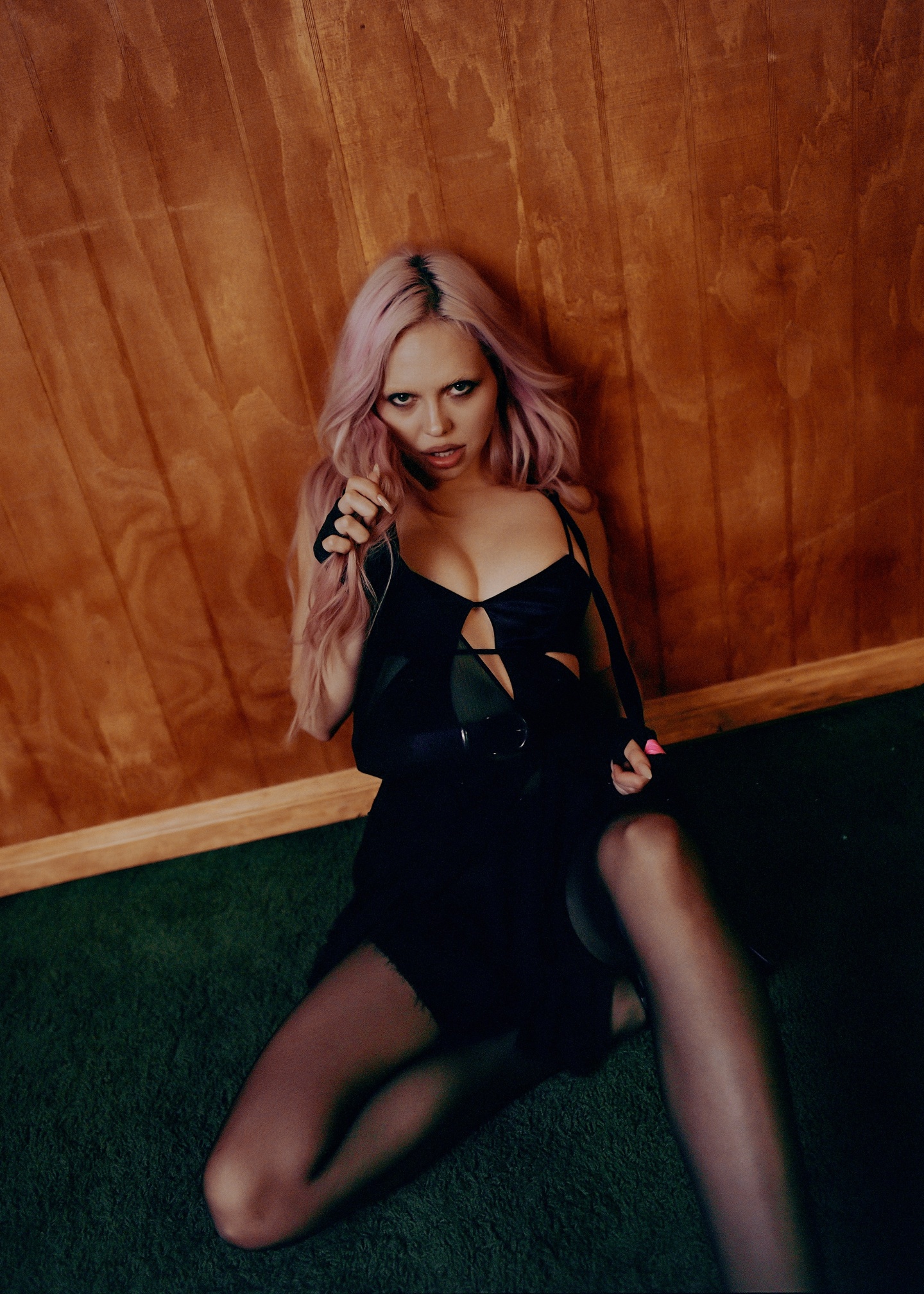
“I thought everybody understood reality TV is reality TV but people wanted to see me as the devil,” she reflects on the experience now, seemingly referencing an on-screen confrontation she had with one of the KATSEYE members, then trainee, Manon.
When the post-show dust settled, she stayed in Los Angeles to launch her pop star career independently. “There was no hesitation,” she says. She dove into “guerrilla-warfare pop stardom” — rhinestoning gloves at 3 a.m. with her best friend and fellow Pop Star Academy finalist Emily Kelavos, writing songs, and stacking vocals. In 2025, she signed a major label deal with Capitol Records.
ADÉLA now wants to turn the villain narrative from Pop Star Academy back on itself. The Provocateur, written after the show as she emotionally processed the spectacle, captures the work she put into becoming a soloist in real time. “I don’t do anything I don’t want to do,” she sings like a mantra on “Finally Apologizing” over a pulsing beat, “Maybe that’s why I don’t work too well in groups.” Later, she digs in deeper, screaming, “You won’t get what you want from me.”
“People always yell ‘apologize,’” she says of some of the comments she receives on the daily. “I don’t have anything to say sorry for.”
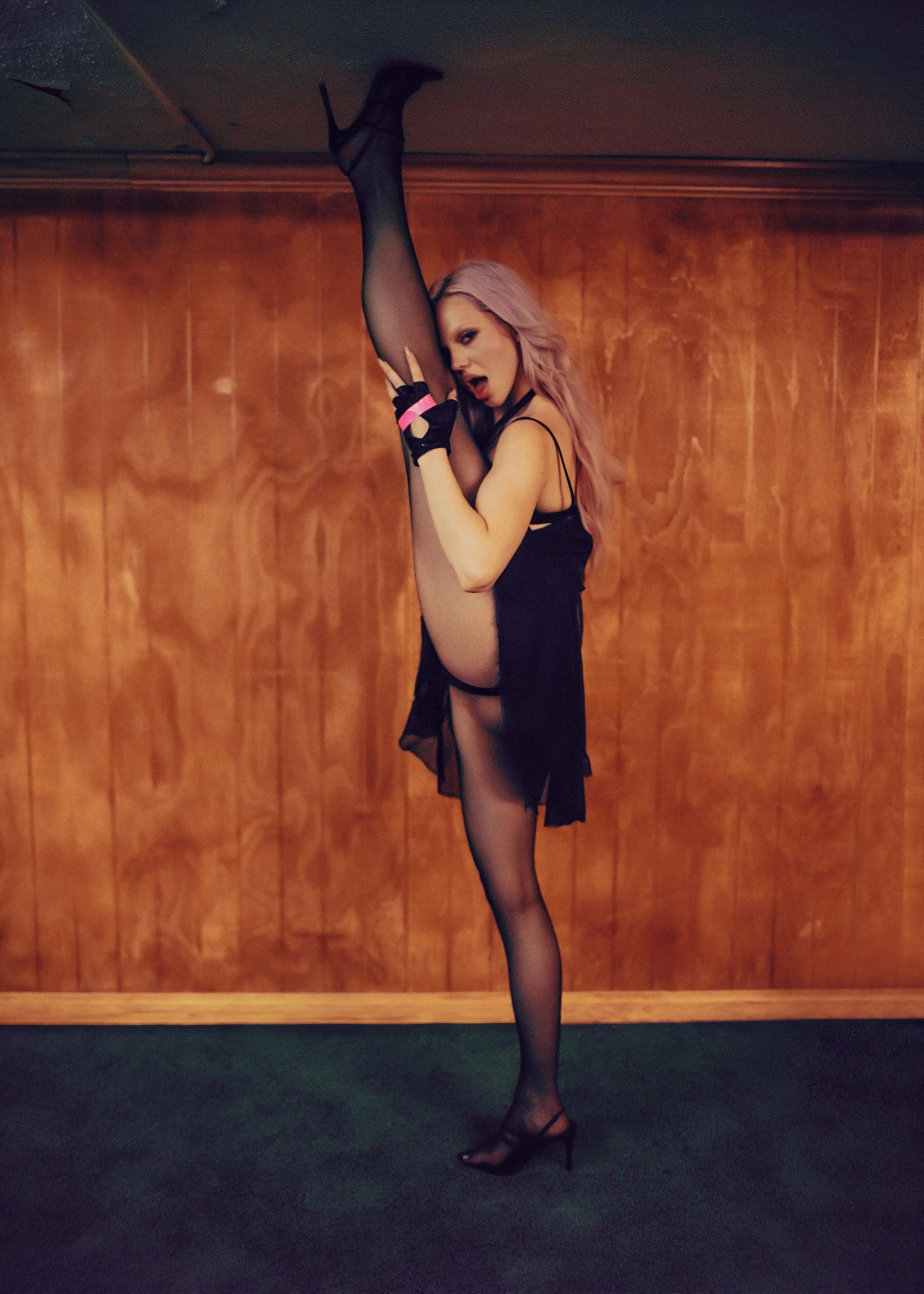
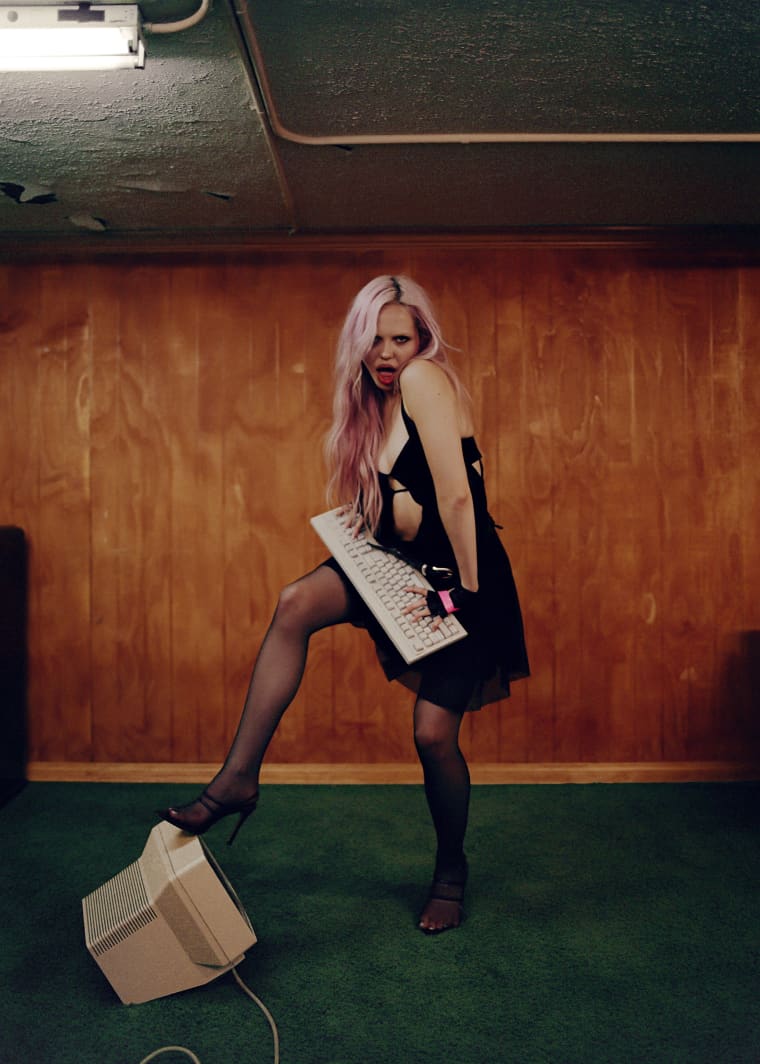
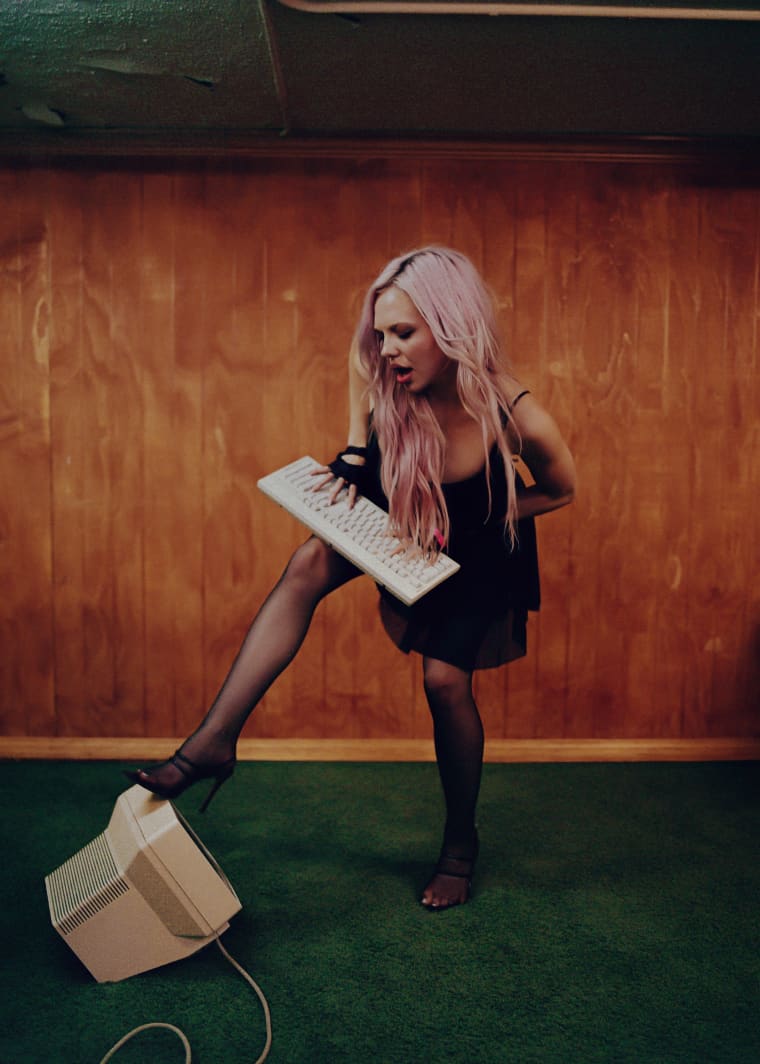
To help her harness the EP’s edgy sound, she surrounded herself with pop producers like Alex Chapman, Zhone (Charli xcx), Dylan Brady, and, unexpectedly, Grimes. The singer found ADÉLA on TikTok after hearing her debut single “HOMEWRECKED” and DM’d to ask who did the harmonies (“I did,” she laughs). Grimes then offered something rarer than a co-sign, ADÉLA says, “she took my ideas as a no-name artist just as seriously as her own, no ego.”
“She is another person that’s very misconstrued and misrepresented by the media and by people on the internet,” she adds. “But in real life, she was the sweetest, most interesting person ever.” Grimes offered her advice on being perceived by the public: “Sometimes defending yourself makes it worse. Shut it off. Know who you are”
What ADÉLA cares about now is expressing a vision of herself and her sexuality that’s vulgar, playful, and unapologetically messy. With songs like “SexOnTheBeat,” a sloppy banger that internalizes then spits out the criticism she was receiving on the daily (“Who’s the label whore, she sings”), she probes at deeper questions like, What would her expression look like if she hadn’t grown up consuming media where “sexy” was almost always defined by men? Though this began as a personal exploration, ADÉLA’S noticed that it’s now coinciding with a rise in more conservative views around female sexuality in pop culture.
People always yell ‘apologize.’ I don’t have anything to say sorry for.
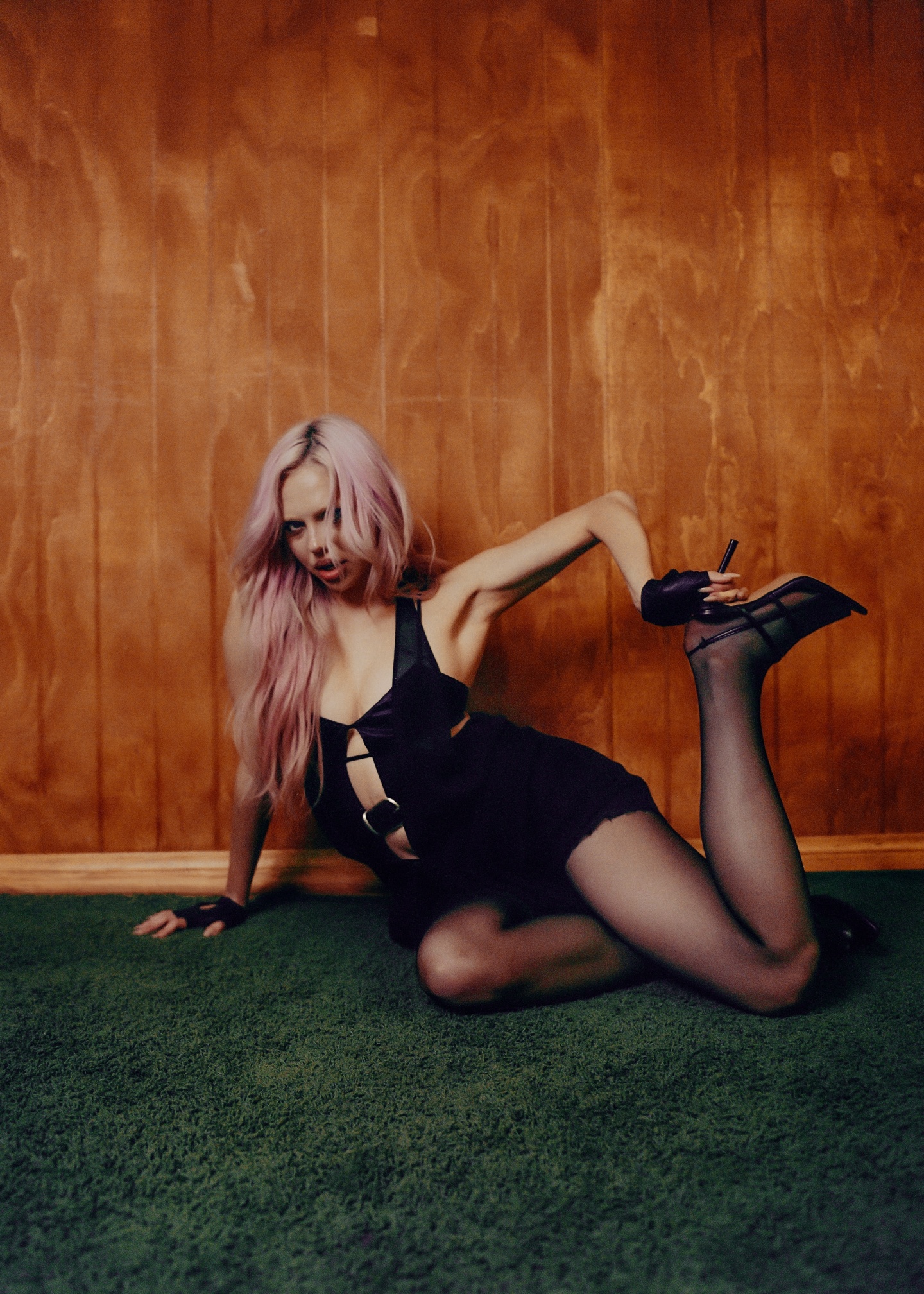
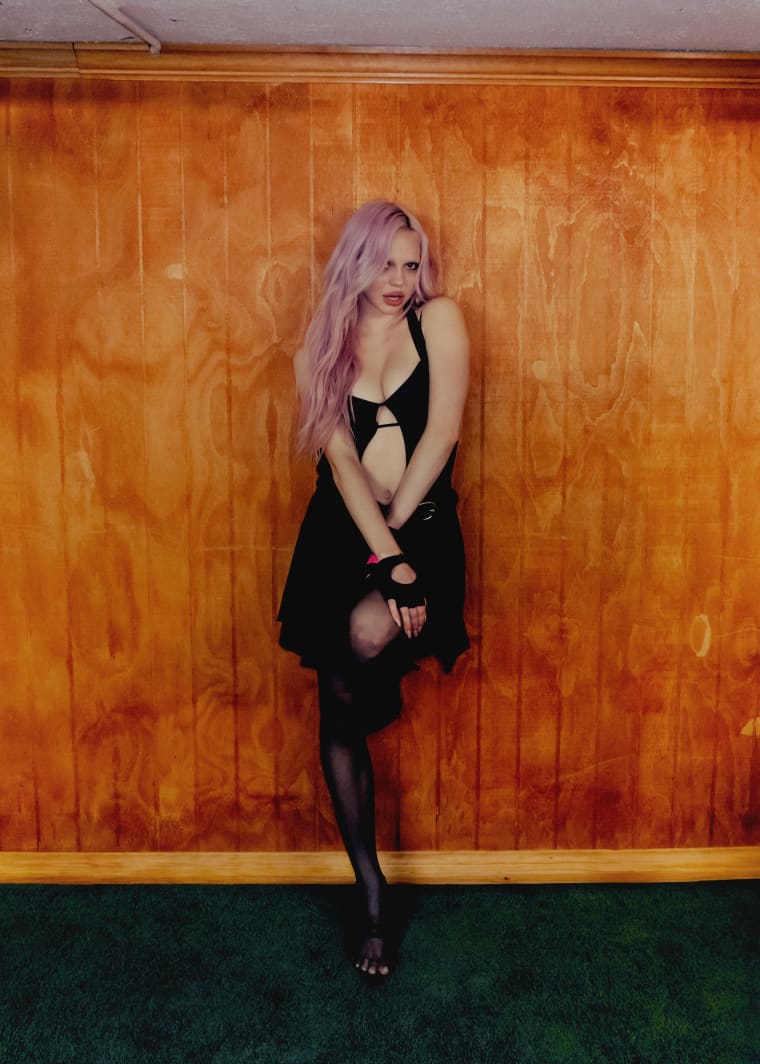
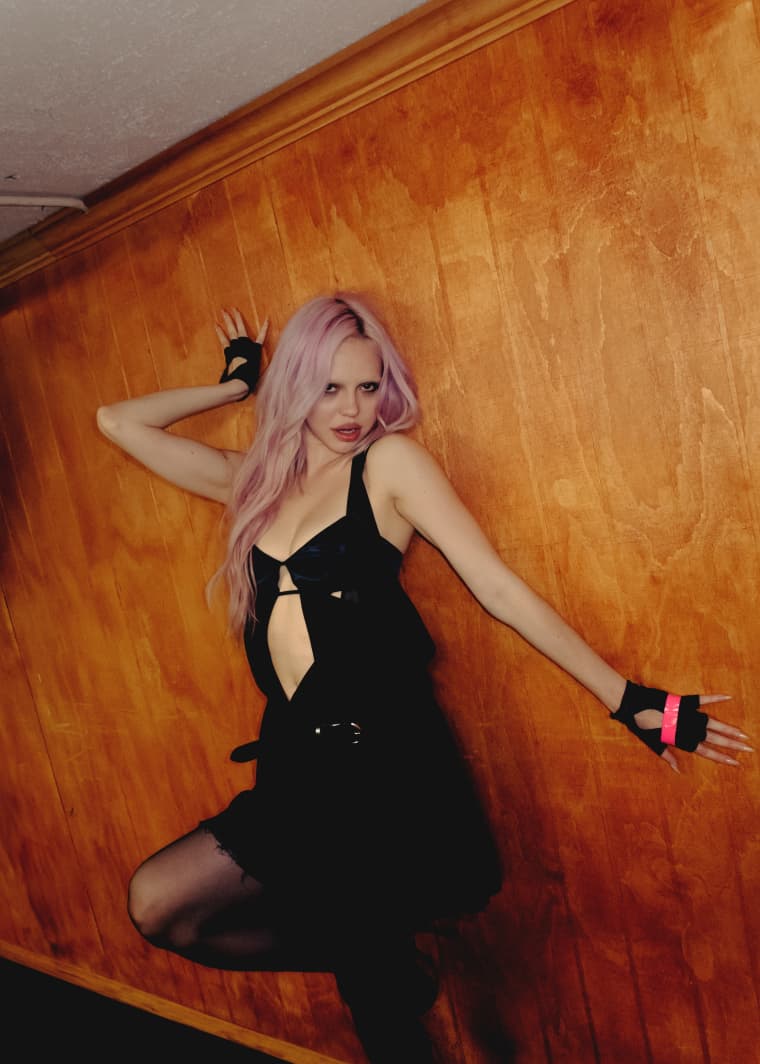
“The pendulum swung a little too far,” she says. “It’s like: male gaze is bad, so now all sexuality is bad. That’s not the point. Just let women do whatever the fuck they want. Some women want to be male-gazian. Who cares?” she rants. She cites the recent uproar over Sabrina Carpenter’s Man’s Best Friend album cover as an example of this worrying overcorrection. “I genuinely thought it was paid hate. Like, how is this even a thing? That’s ridiculous. People have nothing to do with their lives. And the cover itself — it’s a joke. She’s fully playing with them. It’s smart commentary. When did we get dumb? There have been album covers way wilder than that. People need to find jobs. Immediately.”
ADÉLA almost experienced her own version of this right after she signed her deal with Capitol Records. Strangers flooded her comments, saying, don’t sign, don’t get too sexual, don’t change. She now laughs at the memory. “People were like, ‘Oh my god, I can’t believe she’s doing that for attention.’ But I’ve been sexualized my entire life.”
She responded the only way she knew how. “I’ll go in full throttle,” she says. “How sexual can I get until I make you uncomfortable?”
